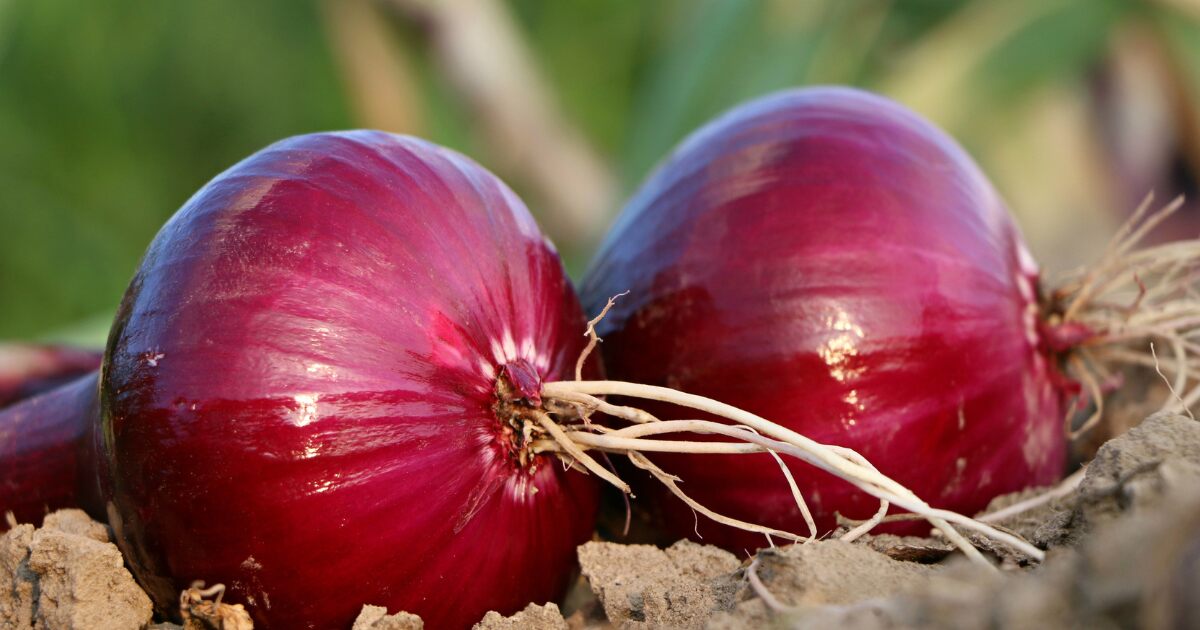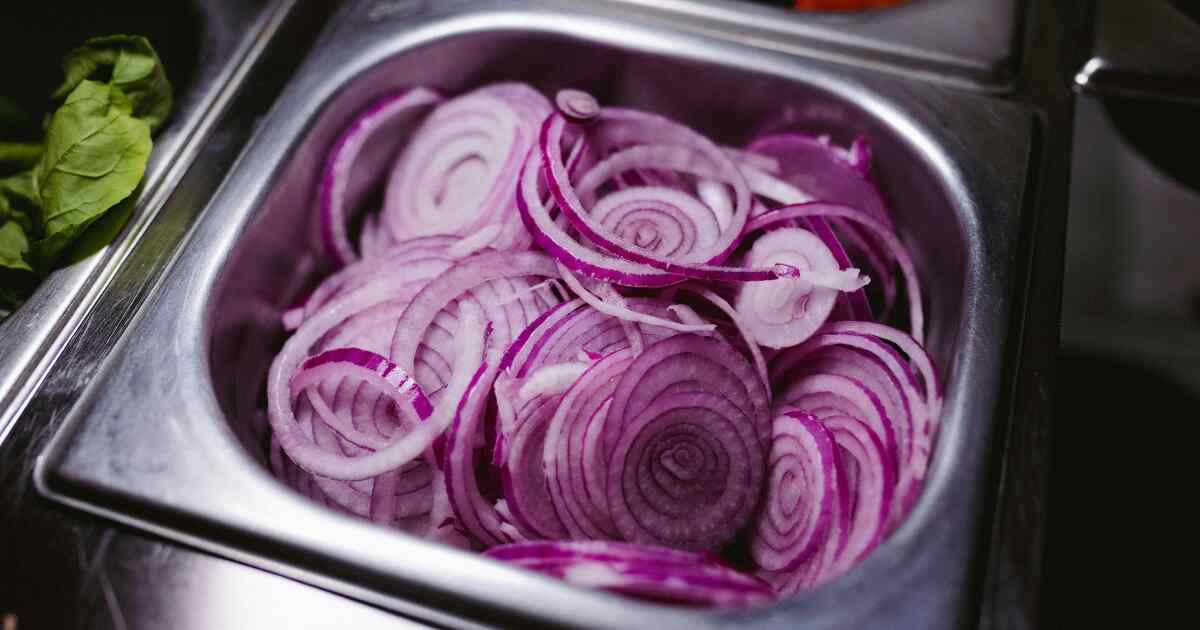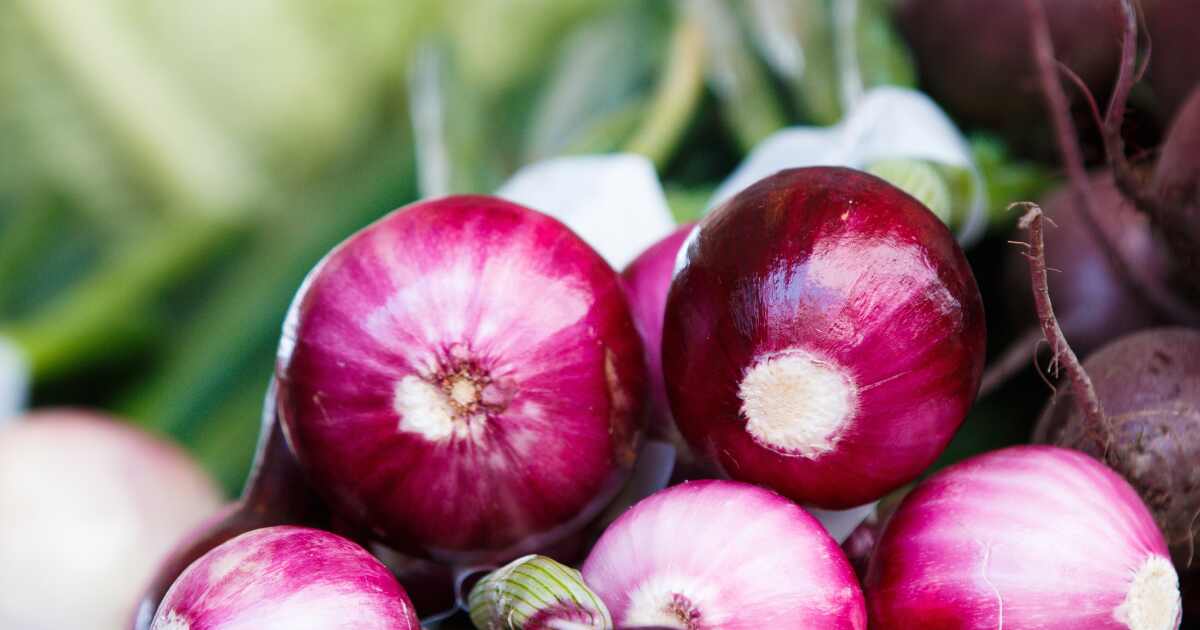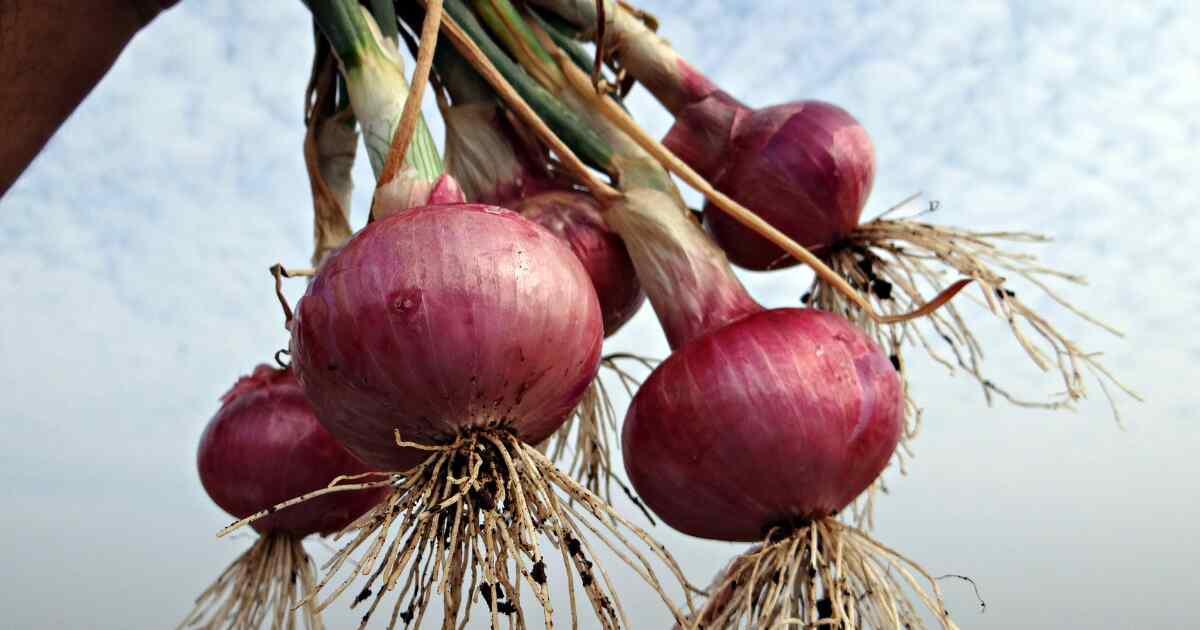About: Onion | Health Benefits of Onions | Types of Onions | Storing Onions | Onion Nutrition | Raw Onions | Cooking With Onions | Onion FAQs:
Onion Benefits: is one of the most commonly used vegetables around the world. It adds flavor, texture, and aroma to countless dishes across cultures. Whether eaten raw, sautéed, or caramelized, onions are a kitchen staple known for their sharp taste and strong smell.
Onions are bulb-shaped vegetables that grow underground. They are part of the Allium genus, a group that also includes garlic, chives, and leeks. What makes onion special is its ability to enhance the taste of food while offering nutritional benefits.

Onions are more than just a staple in kitchens worldwide they’re a powerhouse of flavor and nutrition. Whether you’re a seasoned chef or a home cook, understanding the ins and outs of onions can elevate your culinary creations and health. In this comprehensive guide, we’ll explore the different types of onions, their nutritional benefits, how to store them properly, and some frequently asked questions to clear up any lingering doubts.
🧅 History of Onion
Onions have been grown since the time of early civilizations. Historical records from Mesopotamia, around 2000 BC, indicate the use of onions in culinary practices. The ancient Egyptians revered onions, considering their spherical shape and concentric rings as symbols of eternal life. The discovery of onions in Pharaoh Ramses IV’s tomb points to their importance in ancient burial customs.
In the Roman era, onions were believed to possess healing properties, used to treat ailments ranging from eye infections to digestive issues. The Age of Discovery saw onions being introduced to North America by European settlers, becoming a staple in indigenous cuisines.
Types of Onions
Onions come in various varieties, each with its unique flavor profile and best uses. Here’s a breakdown of the most common types:

1. Yellow Onions
- Flavor: Sweet and mild when cooked; sharp and pungent when raw.
- Best Uses: Soups, stews, caramelizing, and general cooking.
2. Red Onions
- Flavor: Mild and sweet with a hint of sharpness.
- Best Uses: Salads, sandwiches, and grilling.
3. White Onions
- Flavor: Crunchy texture with a sharper bite compared to yellow onions.
- Best Uses: Salsas, Mexican dishes, and stir-fries.
4. Sweet Onions (e.g., Vidalia, Walla Walla)
- Flavor: Very mild and sweet.
- Best Uses: Raw applications like salads and sandwiches.
5. Shallots
- Flavor: Gentler and sweeter, with subtle garlic-like undertones.
- Best Uses: Dressings, sauces, and gourmet dishes.
🥗 Why You Should Eat Onions
In addition to their bold flavor, onions are nutrient-dense, offering low calories and a wealth of vitamins, minerals, and antioxidants. Regular consumption of onions can contribute to improved heart health, better digestion, and enhanced immune function. Their versatility in cooking allows them to be enjoyed in various dishes, making them an easy addition to a balanced diet.
🧅 Nutritional Profile of Onion (per 150g)
| Nutrient | Amount | Benefits |
| Calories | 60 kcal | Low-calorie, helps weight management |
| Carbohydrates | 14.3 g | Provides energy |
| Sugars | 6.4 g | Natural sweetness |
| Fiber | 2.1 g | Aids digestion |
| Protein | 1.5 g | Supports tissue repair |
| Fat | 0.1 g | Negligible fat |
| Vitamin C | 10.4 mg | Boosts immune system |
| Vitamin B6 | 0.12 mg | Helps brain and metabolism |
| Folate (B9) | 28 µg | Supports red blood cells |
| Potassium | 210 mg | Regulates blood pressure |
| Calcium | 30 mg | Promotes bone health |
| Magnesium | 15 mg | Supports nerve function |
| Iron | 0.2 mg | Boosts oxygen transport in blood |
🧅 Top Health Benefits of Onions

1. Rich in Antioxidants
Onions are packed with antioxidants, especially quercetin, which helps fight inflammation and lower the risk of chronic diseases such as heart disease, diabetes, and cancer.
2. Supports Heart Health
The sulfur compounds in onions, like allyl sulfides, help reduce cholesterol and blood pressure, keeping your heart healthy and strong.
3. Enhances Digestive Health
Thanks to their prebiotic fiber, onions help promote the growth of healthy gut bacteria. This improves digestion, nutrient absorption, and immune response.
4. Boosts Immunity
Onions contain vitamin C, which plays a key role in immune defense. Regular consumption can help reduce the frequency and severity of colds.
5. Improves Bone Density
Research shows that frequent consumption of onions may support bone health and reduce the risk of osteoporosis, particularly in older women.
6. Manages Blood Sugar
Certain substances in onions can support healthy blood sugar levels, making them particularly useful for individuals with insulin resistance or diabetes.
🧅 How Cooking Affects Onion Nutrition

Cooking onions slightly changes their nutrient composition:
- Raw onions have more active enzymes and stronger antioxidant properties.
- Cooked onions are sweeter and easier to digest, and still retain many of their beneficial compounds.
- Caramelized onions lose some vitamin C but gain flavor and are rich in natural sugars.
Tip: For maximum benefits, include both raw and cooked onions in your diet.
🧅 Best Ways to Add Onions to Your Diet

- Add raw onions to salads, wraps, or sandwiches.
- Use caramelized onions in burgers, pasta, or as pizza toppings.
- Blend onion puree into soups and sauces.
- Roast or grill onion wedges as a healthy side dish.
🩺 20 Health Remedies Using Onion
- Cold and Flu Relief: Inhaling steam from boiling onions can alleviate respiratory symptoms.
- Cough Suppressant: Consuming raw onion juice with honey may reduce coughing.
- Earache Treatment: Placing warm onion juice in the ear can relieve pain.
- Headache Relief: Applying onion paste to the forehead may alleviate headaches.
- Skin Irritations: Onion juice can soothe minor burns and insect bites.
- Hair Growth: Applying onion juice to the scalp may promote hair growth.
- Digestive Aid: Onion water can stimulate appetite and improve digestion.
- Blood Pressure Regulation: Consuming onion juice may help lower blood pressure.
- Cholesterol Reduction: Onions can assist in lowering cholesterol levels.
- Bone Health: Drinking onion juice may strengthen bones.
- Eye Health: Onion juice can reduce eye irritation.
- Detoxification: Onions can help detoxify the body.
- Anti-Inflammatory: Onion paste can reduce inflammation.
- Antioxidant Boost: Consuming onions can increase antioxidant levels.
- Immune Support: Onions can enhance immune function.
- Respiratory Health: Onion steam inhalation can clear nasal passages.
- Weight Management
FAQs
Why do onions cause tears?
Cutting onions releases a sulfur compound called syn-Propanethial-S-oxide. When this gas reaches your eyes, it reacts with moisture and forms a mild sulfuric acid, causing irritation and tearing. Using a sharp knife or chilling the onion before cutting can help minimize this reaction.
Can I eat onions raw?
Absolutely! Raw onions are not only safe to eat but also offer a crisp texture and sharp flavor. They’re packed with antioxidants, especially quercetin, and are great in salads, sandwiches, and dressings. Just be mindful of the strong taste and possible breath odor afterward.
Are onions good for health?
Yes, onions are loaded with health benefits. They support heart health by lowering cholesterol and blood pressure, boost the immune system with vitamin C, and improve digestion thanks to their fiber content. Their anti-inflammatory and antioxidant properties also help fight chronic diseases like cancer and diabetes.
How to store onions properly?
Store whole onions in a cool, dry, and well-ventilated place like a pantry. Avoid placing them near potatoes, as the ethylene gas can cause sprouting. Cut onions should be stored in an airtight container in the refrigerator and used within a week to maintain freshness.
What are onion health benefits?
Onions offer numerous health perks. They’re rich in antioxidants, improve heart and bone health, regulate blood sugar, and support the immune system. Their anti-inflammatory compounds help prevent chronic illnesses, while their prebiotic fiber supports gut health. Including onions in your diet can promote long-term wellness and overall vitality.
🧅 Conclusion
With their nutritional value and adaptability, onions are a great fit for a wide range of diets. From their various types and health benefits to proper storage methods and culinary uses, understanding onions can enhance your cooking and well-being. Incorporate them into your meals to enjoy their flavor and health benefits.